Advertisement

- Updated on May 19, 2025
- IST 5:47 am
Introduction: A Pain-Free Future for India’s Diabetics
Imagine waking up every morning, dreading the moment you have to prick your finger to check your blood sugar. For India’s 80 million diabetics, this isn’t just a fleeting thought—it’s a daily reality. The sting, the blood, the cost of test strips—it all adds up, physically and emotionally. But what if there was a way out? A tiny device, strapped to your wrist or arm, that keeps tabs on your glucose levels without a single needle. Sounds like a sci-fi dream, right? Well, it’s not. Indian startups like BeatO and Ultrahuman are turning this dream into reality with health tech wearables that cost as little as ₹2,000. These homegrown innovators aren’t just making waves—they’re taking on global giants like Apple and winning hearts across the country. In this blog, we’ll explore how diabetes innovation in India is rewriting the rules of chronic care, one affordable gadget at a time. Ready to dive in?
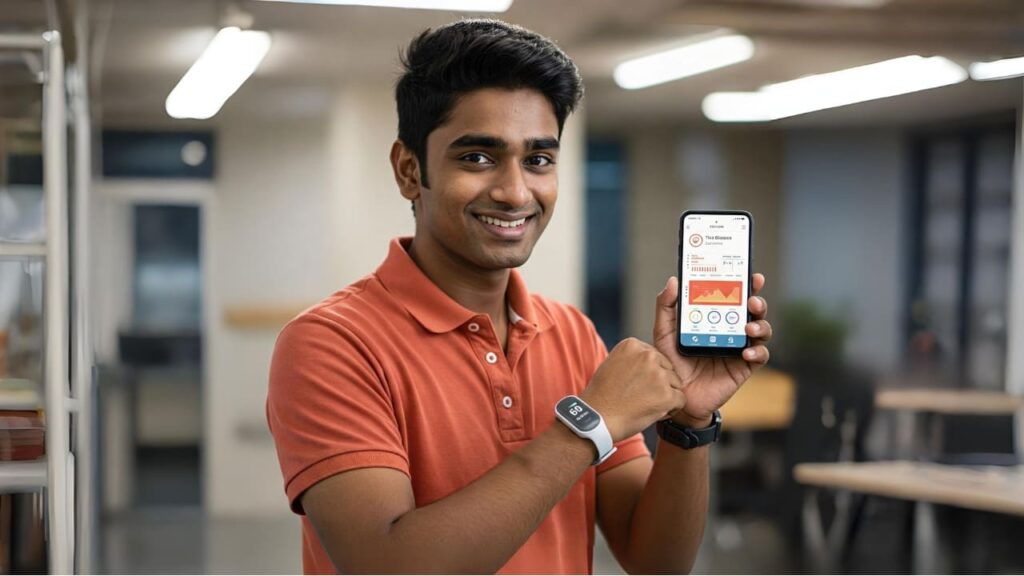
The Diabetes Crisis: India’s Silent Epidemic
Let’s set the stage. India’s often dubbed the diabetes capital of the world, and the numbers back it up. Over 80 million people live with diabetes today, a figure the International Diabetes Federation predicts will soar to 134 million by 2045. That’s one in every six Indians battling this condition. From bustling cities like Mumbai to remote villages in Bihar, diabetes doesn’t discriminate—it hits teens, adults, even kids. Dr. Anjali Sharma, a top endocrinologist, puts it starkly: “Diabetes isn’t just a health issue; it’s a socio-economic crisis.” The cost of managing it—think doctor visits, insulin, test strips—can drain families dry, especially in rural areas where healthcare’s a luxury. Traditional methods aren’t cutting it anymore. India needs a revolution, and it’s happening—right now, with wearable startups leading the charge.
The Old Way: Why Pricks and Strips Fall Short
For years, diabetics have relied on glucometers—those little devices that demand a drop of blood every time you test. It’s a ritual: prick your finger, squeeze out blood, dab it on a strip, wait for the reading. Simple? Sure. Pleasant? Not even close. The pain’s bad enough, but for kids or the elderly, it’s torture. And those test strips? They’re not cheap—₹20-30 a pop, and if you’re testing multiple times a day, that’s hundreds of rupees a month. In a country where millions earn less than ₹10,000 monthly, it’s a burden. Worse, these spot-checks only give you a snapshot, not the full picture. Miss a spike or dip, and you’re in trouble. It’s clear: traditional glucose monitoring has its limits, and India’s diabetics deserve better.
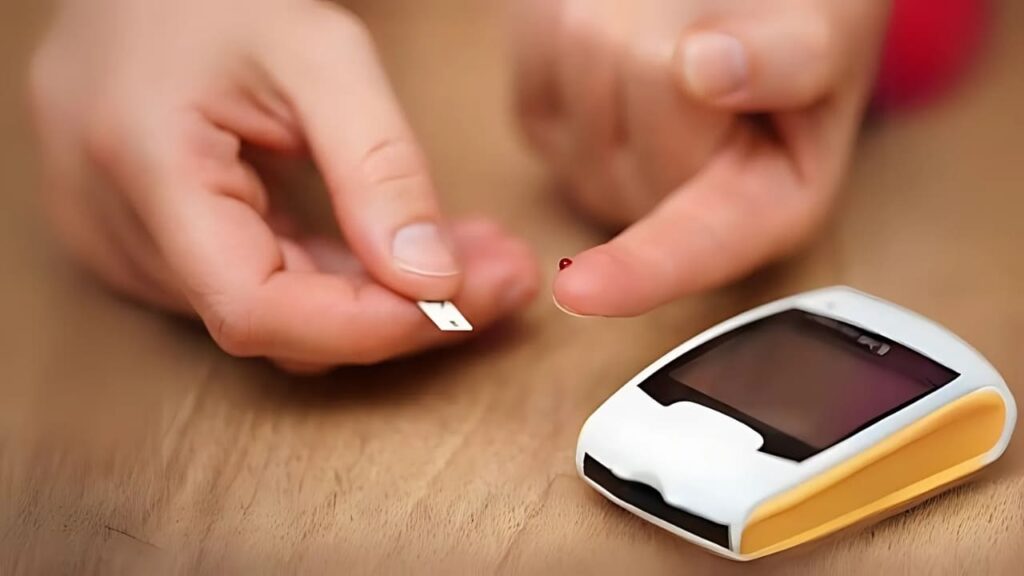
AI Wearables: The Tech That’s Changing Lives
Enter AI-powered health devices. These aren’t your average fitness trackers counting steps—they’re smart wearables designed to tackle diabetes head-on. How? Picture this: a sleek device on your wrist or a patch on your arm, packed with sensors that read glucose levels through sweat, interstitial fluid, or even light signals—no needles required. The magic happens with artificial intelligence. The AI analyzes the data, spots trends, and delivers real-time updates to your phone. Dropping too low? It’ll buzz you. Spiking after that extra roti? You’ll know. It’s like having a health coach whispering in your ear, 24/7. For India’s 80 million diabetics, this non-invasive glucose monitoring isn’t just convenient—it’s a game-changer, and it’s all thanks to diabetes management technology born right here.
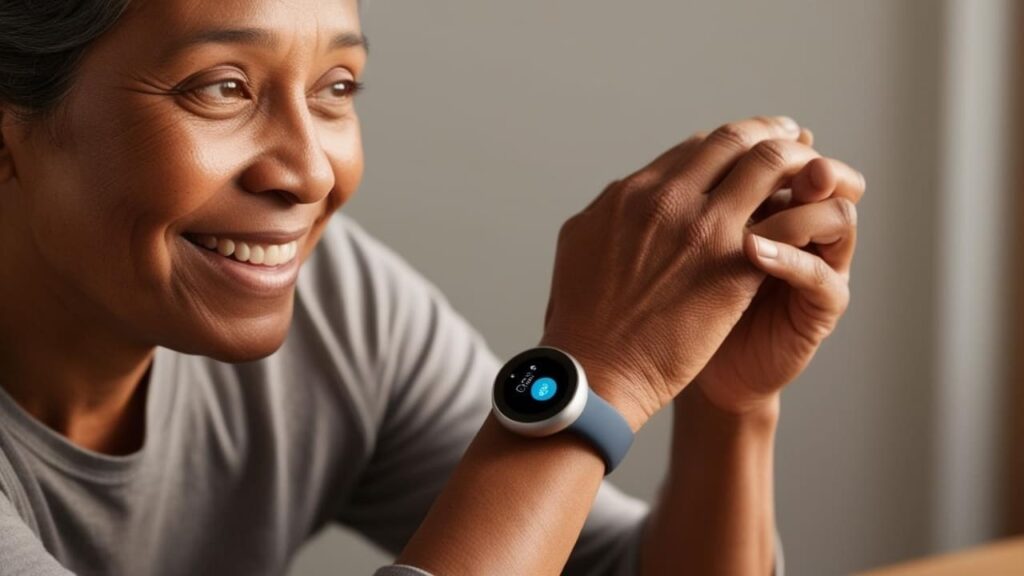
Indian Startups Stealing the Spotlight
So, who’s behind this revolution? Meet BeatO and Ultrahuman—two Indian health tech startups making waves. BeatO, based in Delhi, offers a smart glucometer that plugs into your smartphone. At ₹2,000, it’s a steal. The app tracks your glucose, suggests meals (yes, even dal-chawal tweaks!), and connects you to doctors—all in one place. Then there’s Ultrahuman, a Bengaluru gem. Their Cyborg patch sticks to your arm, monitoring glucose continuously without a single prick. It’s not just about sugar—it tracks sleep and stress too, giving you a full health rundown. These aren’t one-offs either. Brands like Sugar.fit are pairing AI with coaching, while others explore rings and wristbands. What’s the secret sauce? Affordability and accessibility—hallmarks of affordable medical tech designed for India’s diverse, price-sensitive crowd.
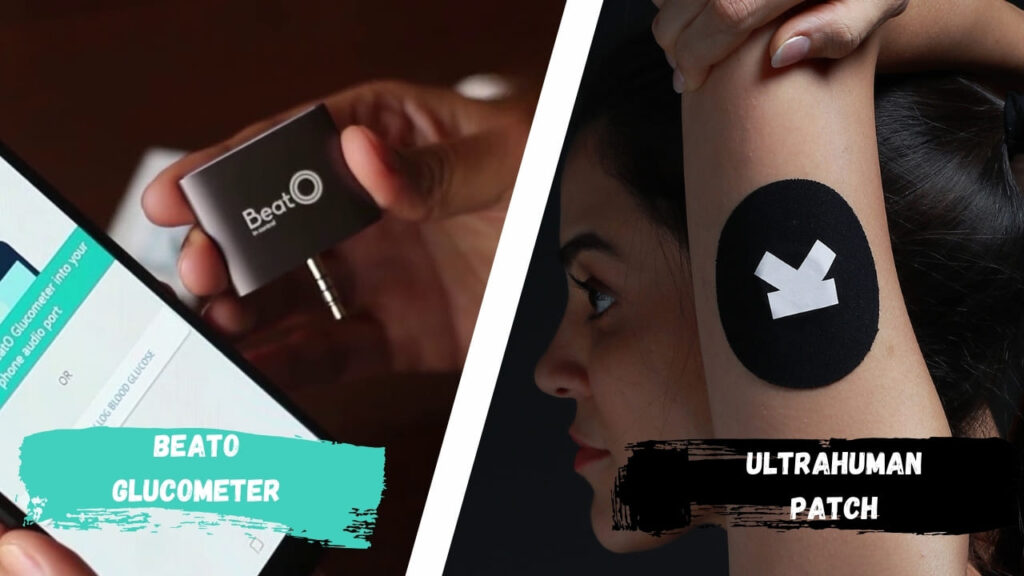
Taking on the Titans: How India Stacks Up Against Apple
Global giants like Apple aren’t sitting still. Rumors say the next Apple Watch might feature non-invasive glucose monitoring—fancy, right? But here’s where Indian startups shine. Apple’s tech, while sleek, comes with a premium price tag—think ₹40,000 and up. BeatO’s ₹2,000 device? It’s a fraction of that, built for India’s masses, not just its elite. Plus, these startups get us. They design for humid summers, patchy internet, and diets heavy on rice and sweets—stuff Apple might overlook. Speed’s another edge: while Apple perfects its prototype, BeatO and Ultrahuman are already in homes. Add the Make in India healthcare boost—local manufacturing, local jobs—and you’ve got a formula that’s tough to beat. India’s not just competing; it’s redefining the game.
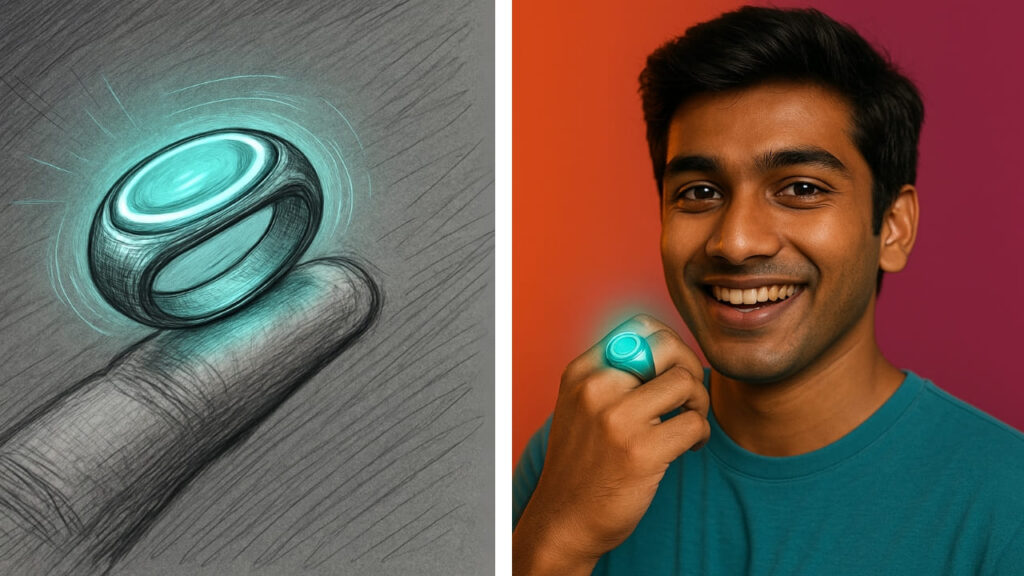
AI in Chronic Care: Smarter, Not Harder
Let’s zoom in on the AI part. These wearables don’t just collect data—they think. Say you eat a plate of jalebis (who doesn’t love them?). The AI notices your glucose spiking every time and nudges you: “Maybe switch to fruit next time?” It’s predictive too—spotting patterns to warn you before a crash. Some even sync with insulin pumps or diet apps, creating a personal health ecosystem. For chronic conditions like diabetes, where one-size-fits-all fails, this AI in chronic care is a lifeline. “It’s like a doctor who never sleeps,” says Priya, a 35-year-old from Pune who’s been using BeatO for a year. Her HbA1c dropped from 8.5 to 6.7—proof this tech works where it counts.
Make in India: A Healthcare Home Run
This isn’t just about gadgets—it’s about pride. The Make in India healthcare push has fueled these startups, turning labs in Bengaluru and Delhi into innovation hubs. By building locally, they cut costs, create jobs, and dodge import hassles. Take Ultrahuman: their patches are made in India, tested in India, and sold to Indians first. It’s self-reliance in action, reducing our lean on foreign tech. Plus, it’s scalable—think exports to diabetes-heavy nations like China or the US. “We’re not just solving India’s problems; we’re showing the world how it’s done,” says Gautam Chopra, BeatO’s co-founder. That’s the spirit driving this movement.
Real Stories, Real Impact
Meet Arjun, a 19-year-old student from Hyderabad. Diagnosed with type 1 diabetes at 12, he hated needles. “I’d skip tests because it hurt,” he admits. Then he got Ultrahuman’s patch. “Now I check my phone and know everything—no pain, no fuss.” His parents sleep better too, thanks to alerts if his sugar dips at night. Or take Geeta, a 42-year-old homemaker from Lucknow. BeatO’s app helped her tweak her cooking—less sugar, more millets—and her levels stabilized. These glucose monitoring wearables aren’t just tech—they’re freedom, confidence, and peace of mind for millions.
Challenges Ahead: The Road Isn’t All Smooth
Nothing’s perfect, and AI wearables have hurdles. Accuracy’s a big one—non-invasive tech isn’t 100% foolproof yet, and medical regulators demand precision. Getting approvals? That’s a maze of paperwork and time. Then there’s awareness—many in rural India don’t know these options exist, and smartphone access isn’t universal. Data privacy’s another worry: who’s seeing your health stats? Startups are tackling these, but it’s a climb. Still, the promise outweighs the pitfalls, and with each tweak, these devices get closer to perfection.
The Future: What’s Next for Diabetes Tech?
Fast-forward a bit. Imagine a wearable that not only tracks glucose but adjusts your insulin automatically. Or one that chats with your smart fridge to plan meals. With AI getting sharper and sensors shrinking, diabetes management technology could go wild—think nanotech patches or even smart tattoos. In India, where affordability’s key, these advancements could drop prices further, reaching every pincode. By 2030, we might see Indian health tech startups exporting to the world, flipping the script on who leads healthcare innovation. The future’s bright—and it’s wearable.
Conclusion: A New Dawn for Diabetes Care
From painful pricks to painless patches, India’s journey in diabetes care is inspiring. Startups like BeatO and Ultrahuman aren’t just matching global giants—they’re outsmarting them with affordable medical tech that fits our lives. For 80 million diabetics, this is more than innovation—it’s hope. As these wearable startups grow, they’re proving that world-class solutions can come from home. So, what do you think? Could an AI wearable change your life—or someone you love’s? Share your thoughts below and let’s keep this conversation alive!
You May Like This
Advertisement

You May Like This








Advertisement
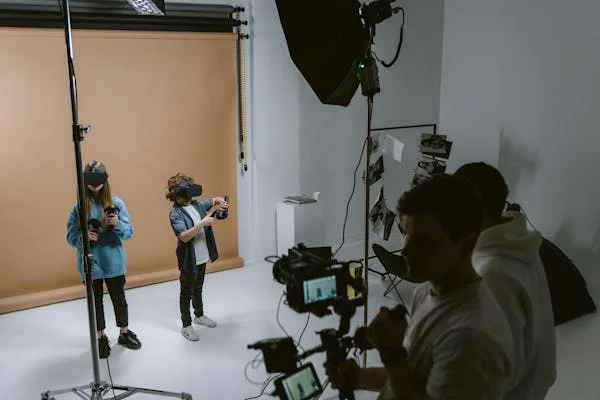
Advertisement

Advertisement





